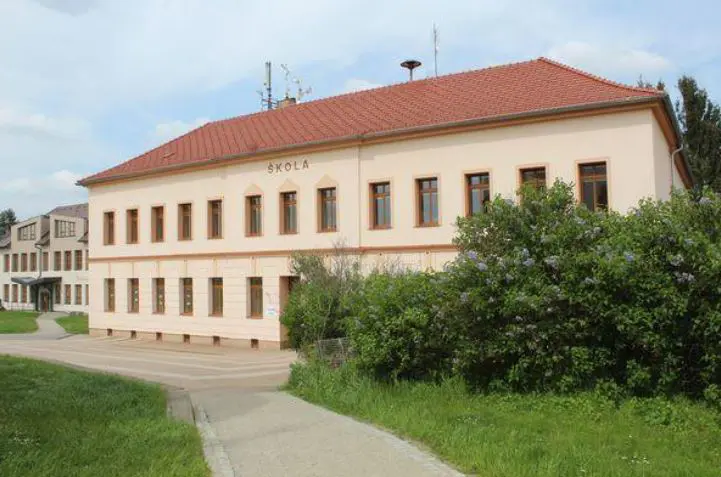The Elementary School in Chlum u Třeboně is a school with over a century of tradition, located in a picturesque South Bohemian small town surrounded by ponds and forests. The school provides education for pupils from years 1 to 9 and emphasises a friendly environment, an individual approach, and support for every pupil. The school building is spacious and has been renovated, featuring modern classrooms, specialist labs, and a newly equipped computer room. The campus also includes a gym, a school garden, and a cafeteria. The teaching staff consists of experienced and innovative teachers who aren't afraid to use modern technologies in their lessons. The school promotes the development of digital skills, collaboration, creativity, and project-based learning. Pupils participate in many competitions, environmental activities, and cultural events in the community. Thanks to its family atmosphere and openness towards pupils, parents, and the community, the school has become a natural hub of life in Chlum u Třeboně. The school is working on its vision, which is shaped by all staff members, both teaching and non-teaching. We want to look in the same direction and pursue the same goal – together.
The Skills Builder Accelerator programme has brought a fundamental shift to our school. It framed soft skills within a clear methodology and structure, helping us guide children to acquire and become aware of these skills. Thanks to implementing the methodology, the teaching staff learned how to use it and embed it into practice throughout the year. Teachers regularly integrate the methodology into their class meetings and subject lessons. As a result, essential skills are introduced to children consistently and systematically, not just occasionally – they have become one of the pillars of teaching and school life.

We incorporated the first principle, 'Keep it simple,' as a shared challenge during lessons. The programme leaders prepared materials for teachers, which were then used in these meetings. This also allowed for clear reflection on how the children reacted to the activities, how they progressed, and whether it made sense to continue. Everyone had the opportunity to try working with essential skills in their lessons as well. Everything was always reflected upon in regular staff meetings.

We mainly track progress through reflection after each skill during lessons, children discuss what went well, what they would do differently next time, and afterwards, teachers reflect in meetings. We also use simple self-assessment tools and sharing in pairs or circles. In teaching staff meetings, we focus on how classes as a whole have progressed and evaluate how pupils respond to individual activities. This helps us adjust both the content and our approach.

We practise the skills not only in class meetings but also in regular lessons – for example, through projects, group work, or solving problem tasks. Some teachers have become accustomed to including essential skills in their subjects, so pupils have regular opportunities to practise. We work on the principle that a single skill appears in various contexts, which reinforces its embedding. School-wide projects are then built directly on the skills that have already been introduced.

We try to ensure that children see the relevance of what they are practising – that’s why we often provide examples from everyday life that might help them at home, with friends, or when communicating with adults. During school events, trips, or community encounters, we create space to apply these skills. Teachers then reflect on them with pupils as a natural part of functioning in society. This year, we successfully prepared the Chlum Historical Trail, where pupils practised essential skills extensively, not only at school. We also leverage the training of essential skills in competitions, such as the A3Learning competition, which we won.
We aim to move towards a deeper understanding of progress – using records, progress maps, and pupils’ self-assessment more. We plan to motivate all teachers to practise essential skills not only during class meetings but more within their lessons. Considering that we have started working on a book about the school’s history, which will be published for the 125th anniversary of our school, this will also be a theme of our first semester, and preparing the book will be integrated into various learning activities within essential skills development.
























